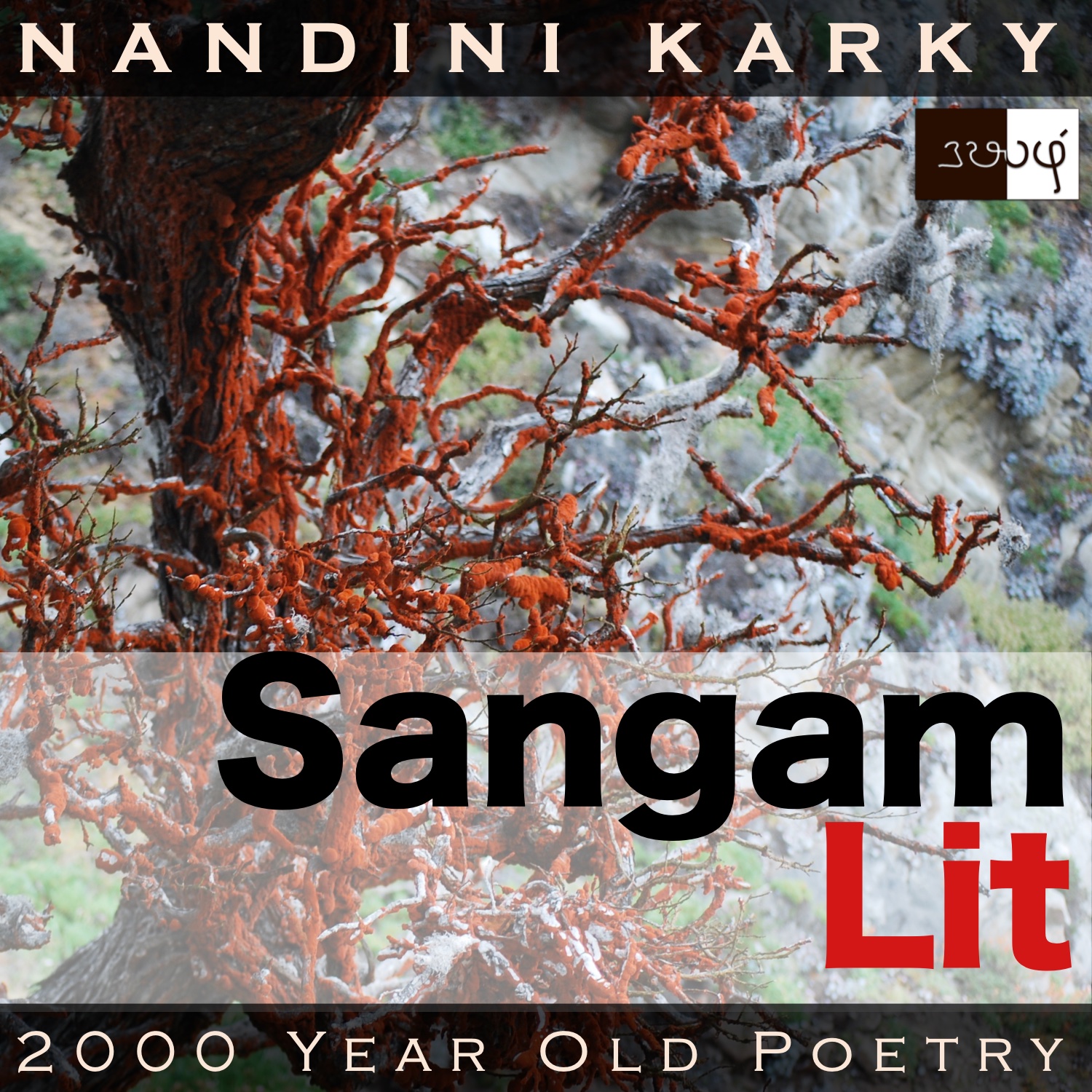Podcast: Play in new window | Download
Subscribe: Apple Podcasts | Spotify | Amazon Music | Android | iHeartRadio | TuneIn | RSS | More

In this episode, we listen to assuring words, as portrayed in Sangam Literary work, Kurunthogai 331, penned by Vaadaa Prapanthanaar. Set in the drylands of ‘Paalai’, the verse speaks in the voice of the confidante to the lady, expressing that the man will not part away.
நெடுங் கழை திரங்கிய நீர் இல் ஆர் இடை,
ஆறு செல் வம்பலர் தொலைய, மாறு நின்று,
கொடுஞ் சிலை மறவர் கடறு கூட்டுண்ணும்
கடுங்கண் யானைக் கானம் நீந்தி,
இறப்பர்கொல் வாழி-தோழி!-நறுவடிப்
பைங் கால் மாஅத்து அம் தளிர் அன்ன
நல் மா மேனி பசப்ப,
நம்மினும் சிறந்த அரும் பொருள் தரற்கே.
‘He shan’t go’ is the core thought here. The opening words ‘நெடுங் கழை திரங்கிய’ meaning ‘as soaring bamboos dry up’ bring before our eyes an arid region for it does take quite a lot of heat to make those sturdy bamboos lose their green. Following this, the terrifying human element of this region pops up in ‘கொடுஞ் சிலை மறவர்’ meaning ‘highway robbers with curved bows’. Not wanting to leave the fauna out of the picture, the verse talks about ‘கடுங்கண் யானை’ meaning ‘stern-eyed elephants’. A tender sight of new life blooming greets us in ‘மாஅத்து அம் தளிர்’ meaning ‘the sprouting leaves of a mango tree’. Ending with the words ‘நம்மினும் சிறந்த அரும் பொருள் தரற்கே’ meaning ‘so as to bring that thing that is better than us’, the verse intrigues our curiosity.
Drying bamboos and dangerous elephants paint a drastic image of the drylands. The context reveals that the man and lady were leading a happy, married life when the lady felt that the man was preparing to part away from her in search of wealth. Observing the lady’s worry, the confidante says to her, “In the waterless drylands path, where even tall bamboos dry up, to the ruin of traversing newcomers, facing them, ‘maravars’ stand with curved bows. There, in this forest, harsh-eyed elephants that feed together also live. Would he want to walk through such a place and part away? May you live long, my friend! Akin to the beautiful tender leaves of the mango tree with fragrant fruits and a green trunk, is your fine, dark skin. Causing pallor to spread on this skin, would he leave to acquire that which is better than you, that unattainable wealth?” With these words, the confidante renders an assurance to the lady that the man will not choose to part away.
What makes the confidante sure? Let’s explore her words carefully to understand. She starts by talking about bamboos drying up, which is quite a deal as these are rugged plants that can withstand arid conditions. Adding to this dread, the confidante talks about highway robbers, standing with bows stretched, on the watch out for wayfarers, ready to kill them and steal their belongings. Beyond the drying plants and the frightening bandits, there are also elephants with harsh eyes that roam together, the confidante mentions. Now, she turns to her friend and asks, how can you think that he will leave to such a place, making your soft, young-leaf-like skin be coated with pallor, so as to go in search of wealth?
Within that question is hidden, a resounding ‘of course not’, according to the confidante. She believes the man will not forgo the happiness of being with the lady to part away to such a difficult place and hence bids the lady not to worry about the man leaving. Stepping away from this theme about separation, I want to zoom on to this quality of worrying about something before it happens, as in the case of the lady. Other than very few people who seem to be blessed with a carefree disposition, it is human nature to worry about things. Perhaps it was this very worry that kept our prehistoric ancestors safe from danger but in a more predictable world, this inherited evolutionary strength becomes a weakness. It’s rather easy to say, ‘don’t worry’ to someone, but much harder to follow it. One tiny remedy that I have come across is to accept this innate nature to worry and set aside time in a day, to spend worrying about whatever it is, that’s bothering us. And, if such thoughts pop up during other times, we should gently shift those thoughts to the ‘worry time box’ of the day. Yet another verse that reminds us about the timelessness of human concerns!




Share your thoughts...